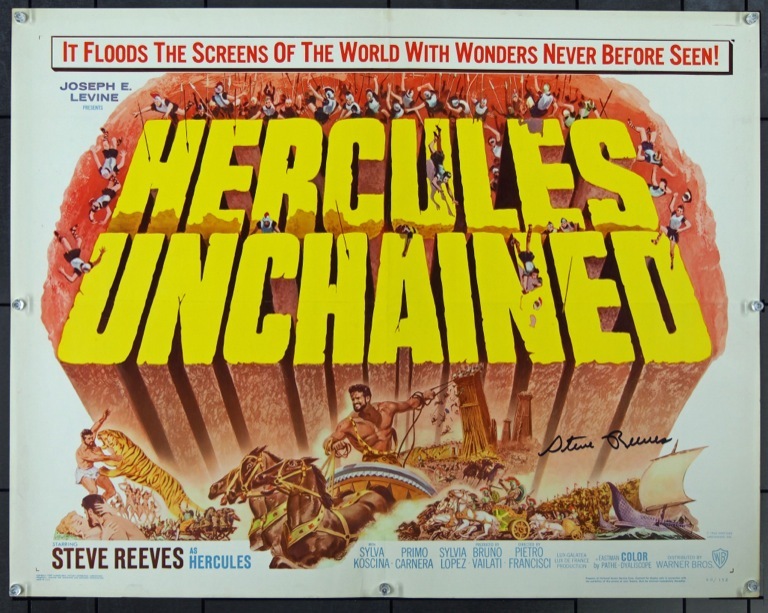Can we talk?
I haven’t been doing much of that lately.
Here, that is.
Why not?
Well, for starters, what most people accept as legalization I’d call grovelization. That cuts to the heart of the matter.
The reasons have been piling up to match my state-of-mind, feelings, and emotions. In no particular order:
- The human emotion “complete disbelief” aptly describes my astonishment that cities and states from sea to shining sea aren’t tripping over themselves to copy Denver, Colorado’s live and let live attitude toward cannabis commerce. So many people want to move here for the fabulous and affordable weed and to work in the industry that For Rent signs have vanished from The Mile High City. If you somehow find a “crib” in a city with a 99.9999% occupancy rate it will cost twice what it did prior to the appearance of quasi-legal weed in 2010 … and thrice as much if it’s in a hip hood.
- Forget cities and states, my state-of-mind is “thoroughly confounded” that the entire nation hasn’t leapt to embrace cannabis commerce. Are you telling me that Michigan wouldn’t be a better place if it converted all its dead and decaying automotive plants to industrial grows? Despite my high-quality kvetching about Michigan’s brain-dead pot policies, last month Detroit — the world’s fastest shrinking city — still chose bankruptcy over becoming a worldwide model for industrial hemp production. One of the many feelings that brings up is “mystified.” Historically, when states exhibit extreme prejudice, the federal government steps in and straightens them out (see the civil rights movement, the Civil War, and abortion).
- I’m also “befuddled” that the federal government won’t unleash an industry centered around a five-leaved superfiber that can easily support a million cannajobs just for openers the nanosecond that prohibition is repealed. It would be a lot more interesting to write about how the government of the United States of America has set a fantastic example for the rest of the world by encouraging cannabis commerce to flourish in challenging economic times. I can mete out praise as well as criticism; it would be “refreshing” to emphasize the positive. But there’s nothing remotely promising on the federal level to gush about. Sorry, Attorney General Eric Holder’s recent pronouncement, “We won’t burn down the state of Colorado like Sherman blazed through Georgia because it allows recreational pot” (I’m paraphrasing), isn’t what I’d call encouragement; it’s condescension.
- On a brighter note, I’ve established a certain level of expertise based on my scribbling here. With no shortage of potentrepreneurs on the hunt for “jungle guides” to navigate Colorado’s raging recreational waters, I currently have paid assignments to write business plans, prospectuses, marketing materials, and everything else under the sun. That gives rise to a warm human emotion: “gratitude.” After running Cannabis Commerce on a volunteer basis for three plus years, the human desire to “take the money” instead of reiterating positions I’ve already established here shouldn’t require much in the way of explanation.
- I’m experiencing a state-of-mind humans get from time to time called “a need to reassess priorities.” It stems from the fact that I sustained what could have been catastrophic personal injuries 9 months ago. That all-too-vivid demonstration that life can be snatched away any second makes me prioritize what unfinished business — like that CD I’ve been yearning to record for 5 years — I’m most passionate about completing.
- I’m feeling the human emotion known as “frustration” over the fact that so few people agree with me that attempting to gain full legalization state-by-state is the worst strategy ever undertaken in the long and storied history of American activism. Those of us who feel that way are definitely in the minority, vastly outnumbered by believers in a tipping point theory which goes something like this: “the more states that
grovelizelegalize marijuana the sooner the federal government will realize the error of its ways, voluntarily capitulate, and repeal prohibition — apologizing profusely for its tardy response.” I don’t buy it for a second, there’s no historical precedent for it, but just about everyone else in the industry does. Feelings of “exasperation” result. People who feel exasperated don’t generally produce exciting articles. I know that. So I’m holding off until I feel genuinely excited again.
- People believe in the tipping point theory because they’ve been brainwashed to believe in it by the paid heads of activist groups who would be out of jobs if they did the prudent thing and cooperated with the heads of other activist groups instead of carrying out their individual agendas. They’d be jobless because when you’re going up against something as massive, monolithic, and entrenched as Federal Marijuana Prohibition cooperation works and splintered efforts don’t. When was the last time that heads of The Big Four activist groups consisting of ASA, NORML, MPP, and DPA sat down to hash out a plan to dismantle prohibition? Why, never. Failing to repeal prohibition = years of work spinning our wheels “winning” statewide initiatives guaranteed to change every time a city council member or a governor feels like creating, editing, or deleting the language of the law. When I ponder the dynamic nature of statewide marijuana initiatives, my state-of-mind shifts into “agitated.” An audience will accept a writer letting off steam every once in a while, but nobody wants a steady diet of it. I’ve already exposed all of this. I don’t need to keep repeating myself like it’s Groundhog Day.
People believe in the tipping point theory because they’ve been brainwashed to believe in it by the paid heads of activist groups who would be out of jobs if they did the prudent thing and cooperated with the heads of other activist groups instead of carrying out their individual agendas.
- A human emotion I’d rather avoid is the egotistical desire “to do what isn’t working harder.” The classic is trying to get someone or something to change by ragging about it over and over — as if the more you do it the greater the chances you’ll get what you want. More often than not, the exact opposite is true. So I’m giving it a rest.
- I can certainly dish out the witty verbal repartee laced with cynicism and sarcasm … only a little bit of it goes a long way. At this point I’d rather stay away from subjects that invite it. That makes me feel “older and wiser.”
- What particular subject invites cynicism and sarcasm? State-by-state legalization, with its puny one-ounce limits, no prisoners freed, and no provisions for permitting serious cannabis research is, IMHO, grovelization not legalization. The human emotion that evokes in me is … well … sad to say the accurate adjective is “disgust.” It also brings up feelings of “nostalgia” for my formative years when national protest movements used a highly-effective blueprint to effect paradigm change against overwhelming odds.
- Speaking of nostalgia, I documented the blueprint for nonviolent civil disobedience in the longish DC Flashback. What spending all that time composing a memoir proves is that at this point I’d rather reminisce about the successful protest movements of the past than disparage the highly questionable strategies the splintered herbal rights movement employs today. In a country that celebrates gaining one-ounce limits if you happen to have a qualifying disease like the second coming of V-E-Day, I realize that’s an unpopular position. We’re all supposed to be grateful for the legalization crumbs that fall off the table that we’re allowed to lick up like lapdogs. Cognizant that life is short, how much of it do I want to spend feeling like I’m “swimming against the tide?”
- The fact that every pot news story is the same in every city in every state — how the big bad feds and local authorities oppress courageous pot vendors despite the fact that the pot vendors bent over and accepted whatever insane twists on reality lawmakers conjured up — summons forth the following human reaction: “I’d much rather post artistic pics of naked Czechoslovakian pot nymphs frolicking in their gardens than rehash ‘Jefferson County Plots to Opt Out of Recreational Pot.’” So I have. It felt so good that I did it again.

Czeching out the local talent in Prague: I’d much rather present this cannababe lounging around in her free society than list “qualifying diseases” without which “patients” (they used to be called “people” before a state agency arbitrarily designated them “patients”) can’t buy any government-approved weed in Arizona. But that’s just me. Photo by Petra Roslër.
- While it’s gratifying that Cannabis Commerce has the internet’s most-visited paraphernalia review — which has had the effect of nudging people away from combustion and over to vaporization, bringing up feelings of “helpfulness” — I’m perplexed that the personal vaporizer reviews I basically bang out receive so many more search engine hits than the poteconomics think-pieces I pour my heart and soul into. I’m receiving the message that people want shorter articles loud and clear. But my natural tendency is to produce in-depth cannanalysis people can’t find anywhere else. So, what to do? Right this second, it’s reassess.
- In the same vein, the declining human attention span elicits feelings of “profound sadness.” Reading used to be considered a beneficial pastime that was one of mankind’s better innovations. Now it’s an annoyance preventing people from getting on with more important stuff like … well, let’s skip the sarcasm and leave it at that. If like me you were born before 1980 AD, you may not be exactly ga-ga over the direction things are heading. While I desperately wish more peoples’ attention spans exceeded two paragraphs, I’m not anticipating a reading revival. I’m experiencing “discouragement” that we as a society are hurtling rapidly down the freeway to illiteracy.
- News stories with titles like “New Jersey Opens Second Dispensary” inspire the state-of-mind known far and wide as “bored to death.” Why not “Shoe Store Opens in Asbury Park?” Two dispensaries to serve the needs of 9 million New Jerseyites? Wowsa! Twelve of the state’s 400,000 unemployed (according to deptofnumbers.com) found work? Whoopee! Stories like that make me yearn for the spine-tingling exhilaration of “Man Bites Dog.”
- The only headline I’m jazzed about reading is PROHIBITION REPEALED. Every other pot story is meh. Saying that gives me a feeling of “righteousness.” It also cements my status as cannabis’ biggest contrarian, making me feel a wee bit … “estranged.”
- Living here in Denver I experience the human emotion known as “wonderment” that society expects me to revere Broncos quarterback Peyton Manning … and completely ignore the fate of caged namesake Chelsea née Bradley Manning. The Obama Administration’s decision to crush whistleblowers we used to admire (Daniel Ellsberg) is one of those neglected big issues deserving of way more attention than it gets. I’m mentioning it here because the exact same forces responsible for putting the more diminutive Manning behind bars for the next 35 years have every intention of clamping federal marijuana prohibition in place for 35 more years — and it’ll stick around for another 350 more years at the present glacial pace of legalization. That’s what happens when anti-war protests belong to the haze of history with anti-prohibition protests similarly nonexistent. My feeling about people having more important things to do than assemble en masse to demand justice for a plant which does everything in its power to make their lives better is “melancholia.”

A world without weed: keep ignoring repressive policies like federal marijuana prohibition and this could be the result.
- The widely-held supposition that THC is an amazing miracle cure for every disease known to mankind elicits the human emotion known as “skepticism.” Believing that cannabis is always effective at treating whatever ails 100% of the population is every bit as fundamentalist a belief as the viewpoint that “cannabis is not a medicine at all.” If you couldn’t guess, fundamentalism is not a state-of-mind I much admire. The truth is that cannabis is incredibly promising on a variety of medical fronts … but every time you vote yes in a statewide MMJ election you insure that serious scientific research cannot be conducted whether you realize it or not. So the mystery of whether the cannabis plant is an amazing miracle cure or snake oil will remain unsolved until prohibition is repealed and serious clinical research finally takes place.
- The fact that I was hoping for way more dialog with big cheese economists — but their continued silence is deafening — calls up a common human emotion: “disappointment.” Is all the controversial stuff I’ve written for three years unchallengeable? I somehow doubt it. I was really hoping to
duke it outmix it up with the ivory tower set a lot more on these pages. - Three years ago I was feeling “wildly enthusiastic” about describing the fully firing cannabis economy I witnessed exploding all around me when I lived two blocks from Denver’s burgeoning South Broadway (“dispensary row”) in 2010. That’s what inspired me to launch Cannabis Commerce. Things were so exciting and so prosperous for so many players in my own hood that it never occurred to me that local governments would shoot themselves in the foot by condemning cannabis commerce to a constricted trickle in most parts of the country where MMJ became quasi-legal.
- Covering constricted trickles as opposed to a free-flowing poteconomy finding its own natural equilibrium is not what I signed up for. Once I saw which way things were going, taking a little legality here, a little legality there, never really reaching for the brass ring — it became harder and harder to stay stoked about the “legal” dollars that were actually being made (a puny $1.8 billion in MMJ sales in 2012 vs. over $100 billion in black market sales). The potential legal riches potentrepreneurs have been forced to leave on the table would have been a tremendous boon for themselves, their local governments, and their communities. Thinking about all that lost loot brings up a bittersweet human emotion: “regret.”
- The version of legalization most people are willing to accept — you can load up a semi with booze, you can fill up a wheelbarrow with cigarettes, but you can only buy one ounce of the magical weed — results in less than 5% of the commerce that would be generated by Cannabis Commerce’s vision of full legalization, which, if it was a 60s “B” movie, would be titled Cannabis Unchained. My feeling about that? “Chagrin.”
- Then there’s the reality that a writer like myself can actually harm a successful cannabis business by reporting how successful that business has been — reporting which would generally require listing positive numbers. MMJ states that are all about “the medicine” generally have politicians and US attorneys ever vigilant about policing any “profiteering” in their pure-as-virgin-snow MMJ domains. “Voters didn’t approve the right for any MMJ business to get rich from medical marijuana sales, they approved non-profits to heal sick people.” Some DEA districts prick up their ears at the mention of successful pot businesses raking in beaucoup bucks. Well there’s going to be one more sick person if I keep writing about hypocritical crap like this: me. It’ll drive me “out of my mind.”
- At some point being a contrarian takes its toll and becomes tiresome — dialing up an unhealthy dose of “futility.” Given a choice, I’ll choose creativity over futility. There’s a basic human need to “take a break” from things we can’t control … and prioritize activities which are in our power to control. Recording the aforementioned triple CD of songs currently hibernating in my “silo of hits” is one example of something that’s in my power to control — as opposed to the slow pace of
legalizationgrovelization taking place in geological time that my cautionary tales have thus far failed to significantly impact. At least I can take solace in a peaceful state-of-mind: “knowing in my heart of hearts that I gave it my best shot.” - There is one report that I’m super-passionate about completing: my “joint venture” with Jon Gettman, Cannajobs 2013. Fortunately or unfortunately as the case may be, it’s delayed. It’s delayed because it’s turned into an academic study. Academic studies require conducting the kind of blind survey that academics take seriously. Conventional media tends to under-report results of studies that academics don’t take seriously. After we harvest the survey results, the report will be subjected to an exhaustive review process. While I can and have told you that there are a minimum of 1 million cannajobs that would be instantly created the nanosecond prohibition is repealed and I’ve put together a compelling case — a statement like that is still considered a personal opinion and personal opinions are not the pathway to wide acceptance. It’s heartening that the Medical Marijuana Industry Association is on board — numbers like that could buy dispensaries relief from harassment on so many different levels.

Laying bare my thoughts: one picture is worth a thousand local governments vs. pot businesses stories. Photo by Petra Roslër.
As always I could go deeper and longer but I trust the preceding bullet points adequately explain my absence here of late.
Before I spelunk into the editing menus of my Roland Jupiter 50 synthesizer, there’s an important point I need to emphasize …
No Cannabis Commerce article is out of date!
 While some of the in-depth think pieces on Cannabis Commerce may be dated 2010 (like the quintessential Cannabis Commerce in the USA), 2011, 2012, or earlier 2013, it doesn’t really matter: they’re as relevant today as the day they were written. That’s because they’re not “news stories” covering local skirmishes, they’re think pieces cannanalyzing the big poteconomics picture.
While some of the in-depth think pieces on Cannabis Commerce may be dated 2010 (like the quintessential Cannabis Commerce in the USA), 2011, 2012, or earlier 2013, it doesn’t really matter: they’re as relevant today as the day they were written. That’s because they’re not “news stories” covering local skirmishes, they’re think pieces cannanalyzing the big poteconomics picture.
Aside from a few more MMJ states tugging the inevitable balls and chains around, nothing has substantially changed in the way activists settle for quasi-legalization in the same half-assed manner they always have. There’s no indication they’ll abandon a losing strategy anytime soon — no matter how many times I bust them on it.
You might want to poke around the site and catch up with the tuneful howling I’ve already done about that.
With all the practically book-length series available for free on this site — not to mention the scrumptious selection of shorter articles — there’s more than enough tasty treats on the menu here to tide you over for the immediate future.
In the immortal words of General Douglas MacArthur, “I shall return!”
p.s. Photographer Petra Roslër’s website is http://www.littlebeast.net/en/. It’s a provocative mish-mosh of artistic, commercial, and socio-political uniqueness. Highly recommended!
{Update 2/21/2014: I have in fact plunged headlong into recording the triple CD, an ambitious project that requires my full powers of concentration. Almost two months into the recreational pot era, all I can say is that so far it seems even more open to criticism than medical marijuana because, guess what, rec weed costs twice as much as MMJ — stores selling it sell the same products at double the prices — and even less businesses are allowed to sell it. I’ll stop there … for now.}
{Update 6/01/2014: Now after innumerable hours slaving away I’ve got key tracks recorded for 18 songs. That means it’s time to record drums then start finishing the songs. In my case, recording drums means turning to mythic character Ric Parnell, none other than the immortal “exploding drummer” in the cinematic classic, This Is Spinal Tap. I’m tempted to reminisce about how His Lordshit was kicked out of The Milkmen and into immortality for playing the snare drum with his head prior to passing out at one too many of our gigs in the fun-filled 80’s … but insufficiently tempted to go there yet. I’m not sure how long I’ll be able to resist, so don’t touch that dial.}










5 comments
William Garrity says:
Nov 20, 2013
You, my friend, have a way with words. Been reading a lot of articles of yours. I just moved to Denver from Salt Lake City. I’m in a hotel at the moment, having just got here, and I decided to relieve the stresses of moving by just taking a drive and seeing a good bit of the city. I swear I passed about 30 dispensaries. The first dispensary I saw had me giddy like a school girl at the fact that a building like that even existed, and to be honest, I felt the same way passing the 30th.
I had to take pictures. I almost wonder what’s going to happen to businesses like this in a couple of months. Will there be more? Less? Will this legalization attempt blaze an unprecedented trail or fall flat on its governmentally unsanctioned face? I moved here not just for cannabis, so I’m happy with my decision no matter what happens.
But I felt this sense of social responsibility that I can’t quite put my finger on; it’s like I want to be there at a fascinating point in our country’s development, and seeing as I was only 575 miles away to begin with, I feel “called” to witness January of 2014 in the Mile High City not just for myself, but for those who live 4,000 miles away (or even overseas) in communities that consider cannabis smokers to be on the same moral ground as violent and dishonest criminals (I’ve been there, too). If they were me, they’d probably do the same thing, and it shows just how much of a sense of belonging I feel in this interesting global community.
We’ll all see what happens. Some with internet updates, and some gawking stupidly out of a car window on South Colorado Avenue.
Lory Kohn says:
Nov 20, 2013
Thank you for your kind words and I still share your giddiness that our town and maybe Seattle are the two main potspots on Planet Earth. As you’ve just moved here, unless you bought a home, you probably noticed the rents are twice what they are in Salt Lake City. Got any idea why? Why, yes, it’s the cheap and abundant and highly potent MJ world and the fact the city fathers, the State of Colorado, and last but not least the US Attorney for Colorado John F. Walsh III get out of the way and take the money. In fact good luck finding a “For Rent” sign anywhere around town.
That’s what cannabis commerce does for a community and a local economy.
You’ll also notice there’s like zero crime accompanying a city chock full of dispensaries.
As far as how the Big Chief in D.C. and the rest of the “federal apparatus” will react to our brave new world of recreational weed … as you know from cruising this site, I don’t subscribe to the tipping point theory and I cannot name a single higher up in the Obama administration who’s a friend of the magical weed. It’s still the dark ages back east. I put nothing at all past them.
But let’s stay on the bright side. The fact of the matter is that if you and I made a hundred dollar bet who could find the worst weed in 24 hours, it would be incredibly hard to win the bet, cause there’s great weed all of this burg and it’s down to something ridiculous like $125/oz.
You couldn’t pick a better place to live if you’re a friend of weed, and it sure sounds like you are. Welcome to the Mile High City!
William Garrity says:
Nov 24, 2013
Thanks a lot for taking the time to reply! Great answers and I appreciate the welcome!
Silverado says:
Nov 26, 2013
Oh I like the way you think and the way you can put those thoughts to….paper BUT when will you & everyone else realize that the people who run our country and print our money are not impressed by a few billion tax dollars emanating from legal weed that they can instead produce out of thin air whenever they want. It’s never about so called tax revenues to this crowd.
Nope….to this crowd it’s all about control. Not about missing the boat on a few billion easily copied paper dollars in the name of lower(ing) taxes. Are you kidding?? It’s all about control. And for them it probably always will be. Anyway, all this pot prohibition ends when the thing that gives them their power ends – the demise of the US dollar. Like prohibition, what can’t go on forever – won’t.
Lory Kohn says:
Nov 26, 2013
I agree with you 1,000% on the “they can print up as much dinero as they want so who needs cannatax?” angle.
Coincidentally, I was just about to watch the documentary Let’s Make Money on Netflix!
When I started Cannabis Commerce, I was all about collecting the tax dollars (see “Cannabis Commerce in the USA”); over the course of three years, I’ve realized that while the possibility exists to collect a bunch of it, governments large and small will just do insane things with it — starting with placing orders for drone planes, building internet and email monitoring spying stations and data collection centers, and funding an internal army to police us.
So I’ve shifted my focus to cannajobs. Sure, people do insane things with their money, too, but they’re generally less insane than what nations, in particular our nation, does with it. Don’t even get me going on how it treats “emerging nations.”
Yes, the federal government of the US of A has done a fantastic job of gaining control over all our lives.
As I’m sure you know, it makes no difference whether a Democrat or Republican is in the White House. Both parties are equally obsessed with it. Presidents are elected solely on the basis of their mediagenic appeal. They serve as compliant puppets.
Your last point about the demise of the dollar is a well taken also. The USA will probably be conquered by something out of left field like that, not by military force. The Chinese and Indians took over the manufacturing and service sectors without firing a shot.
There’s no reason I can think of to have any confidence that the “16 trillion dollar national debt” figure is true. Why should I believe that when the government lies about just about everything else? And not even Congressmen can look over the Federal Reserve’s books?
I think there’s a drone hovering outside my window right now …
But what about those Broncos?